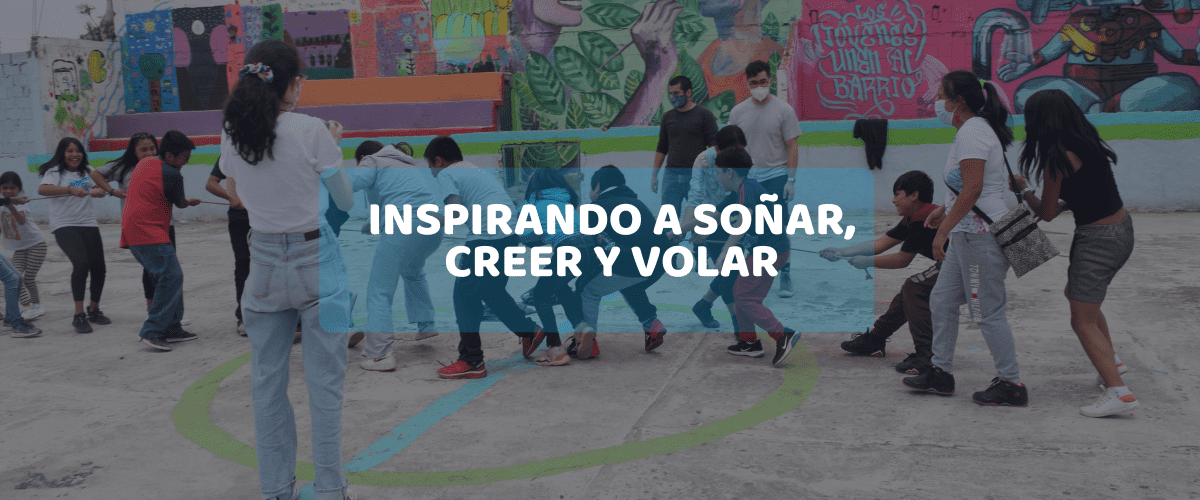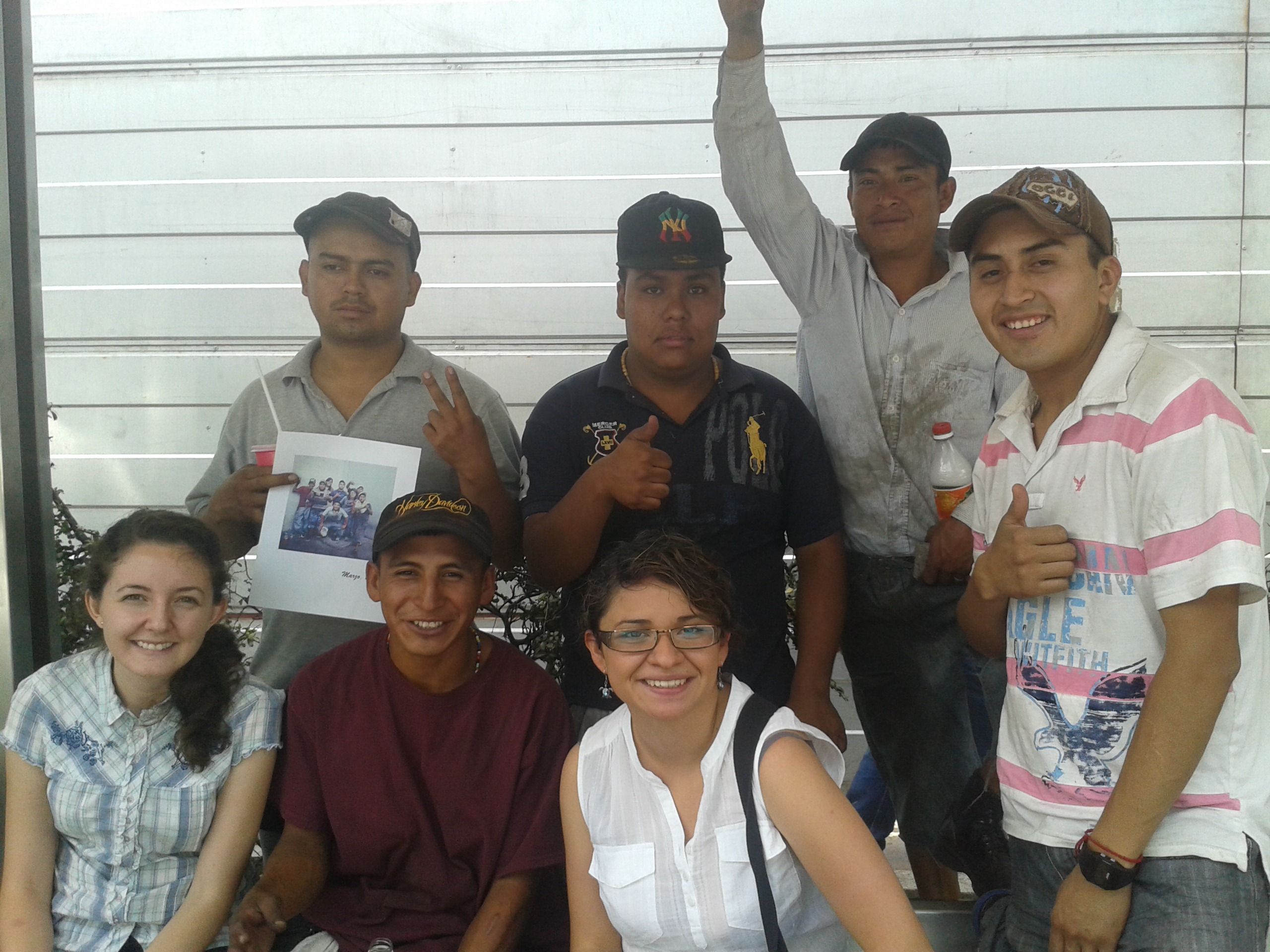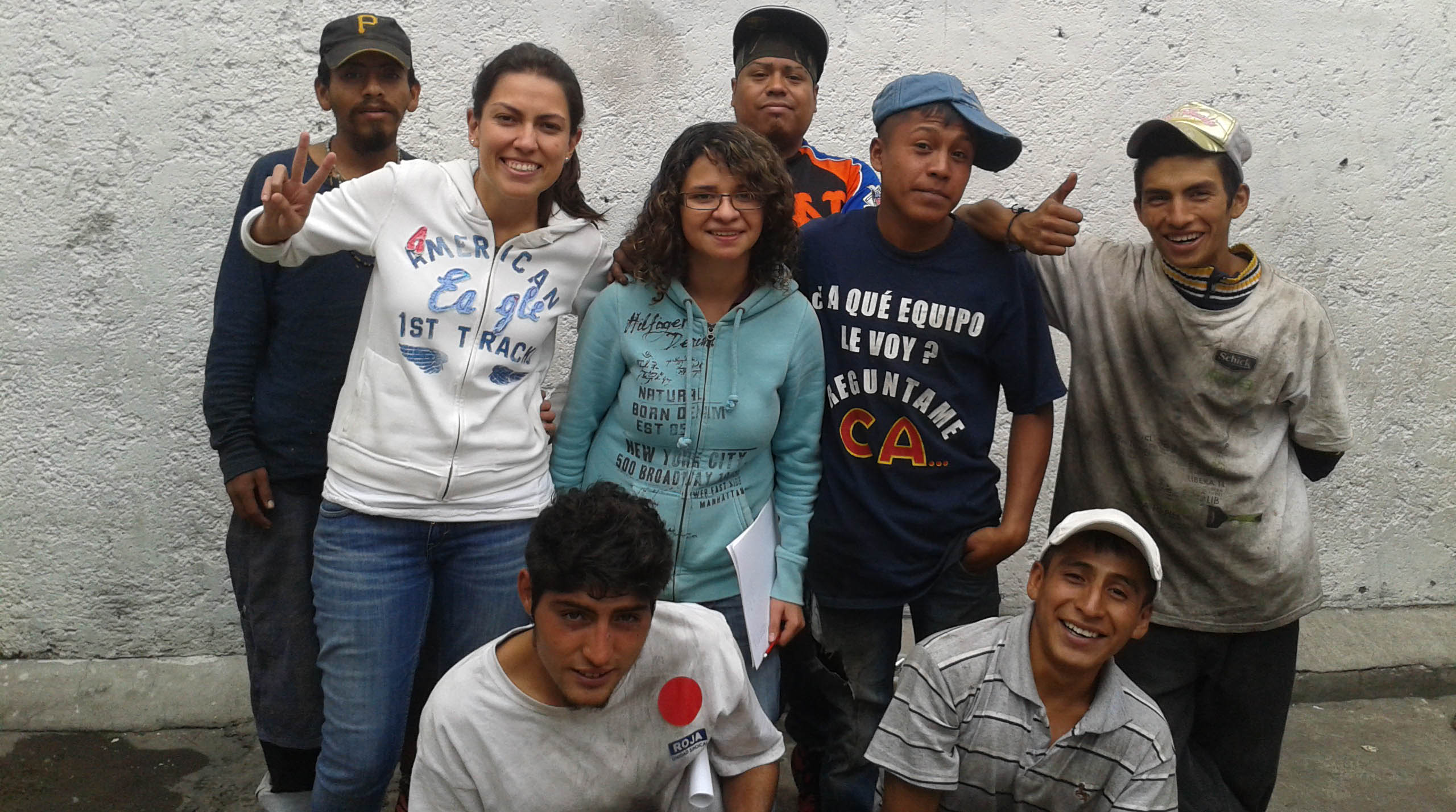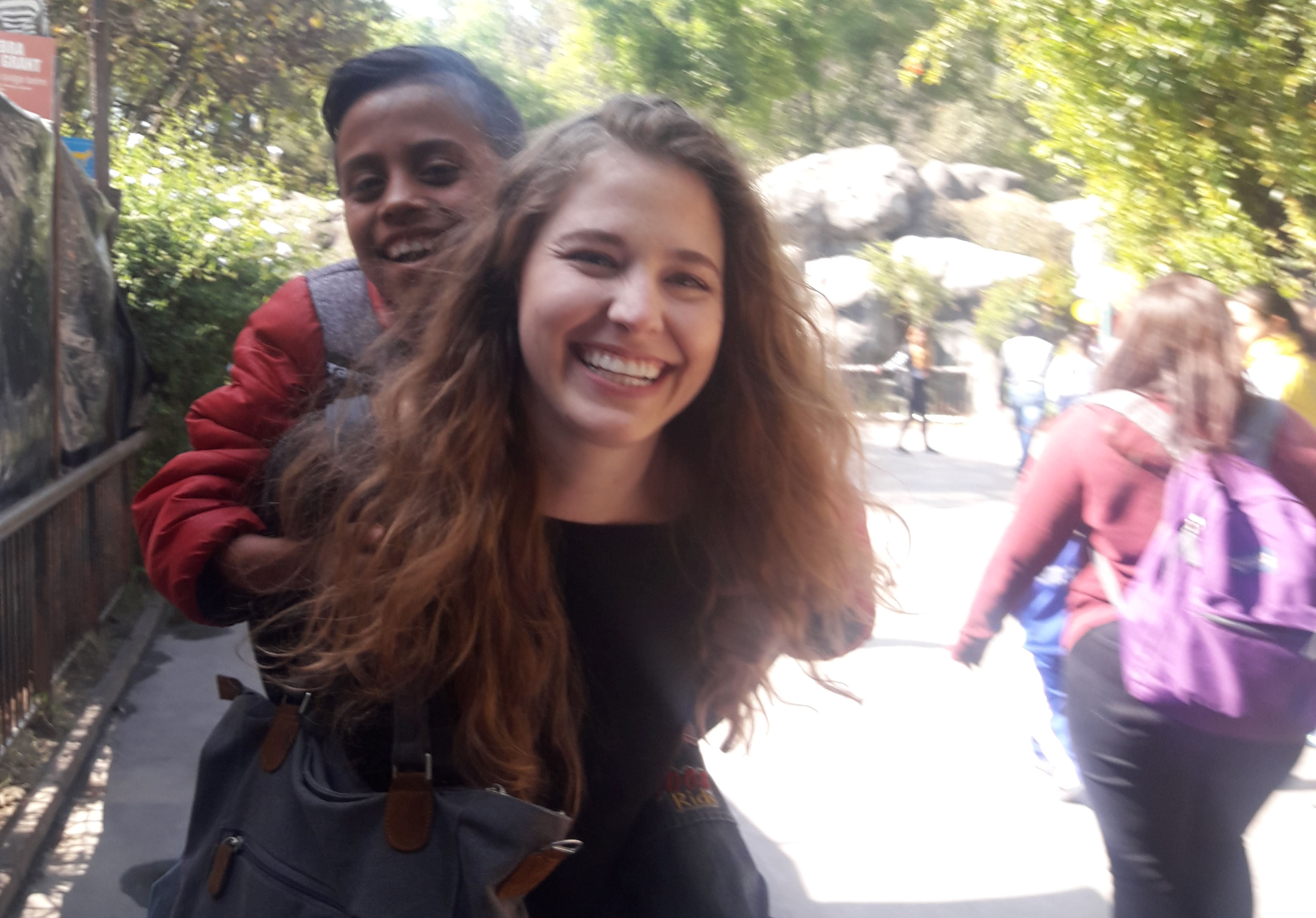
About us. How it began.
How Proyecto DUQ Began
In 2014, while walking down the street in Mexico City, Perla Palestino found four young people sitting, with their worn clothes, a bottle of soap and a rag, they were windshield wipers. Some of them were under the influence of drugs. Since Perla Palestino was an experienced music teacher and psychologist, she didn't shy away from these four youth, but engaged them in conversation and wish them a Happy Valentines Day, sharing some of the candies she had. While whe was talking with them, she realized that behind the torn clothes, the tattoos and drugs, there were stories. Life stories, some of these people had worked on the street since they were children, others had become parents when they were 15 or 16 years old.

Together with Diana Roldán, Perla and Diana began to visit these young people, whose average age was 22 years old. Once a week Perla and Diana would talk with them, eat pizza or sing songs with the guitar.
They held music therapy sessions, where the young people chose songs, they sang them and later we commented on the content of the lyrics. Two songs were very meaningful to them.
Both songs talk about the common history of young people living on the streets.
that child does not know love, he begged, he begged, he sold balloons and chewing gum, he cleaned the windshield, he learned, to live (...) at the end of the alley, there is that child without any illusions, he inadvertently understood that only by working could he eat…”
— The boy without love - El Tri
it was easy for him, he unsheathed his dagger and set out to rob a popular grocery store he was only 17 years old (…) he did not kill him! It was the same society and in the environment in which it developed, it did not kill him, it was the environment, his parents, his friends, his longing for him, who knows ”
— He didn't kill him - El Haragán

In 2017, more young people became homeless or began to live on the street, the next generation, children and young people with an average age of 14 years. They reported going out to work on the streets because they needed to help their families, had dropped out of school, and in other cases because of family problems. During this year we established a relationship with the youngest and carried out walks so that they could discover a life different from the streets.
At the beginning of 2018 they began to see the need for doing interventions with the youngest, most vulnerable, before they became habituated to a life of drugs & crime. The intervention had to reach the source of the problem. These children took Perla with their families, who lived in the south part of Mexico City called Iztapalapa. When Perla arrived to this place, she saw so many children who were in risk, who where in the streets, some of them even without clothes. Perla dreamed to have a safe place for these children, where they could study, play and develop more skills to have a better life. This was the beginning of Proyecto DUQ.
Proyecto DUQ started on June 2018, with a summer camp we organized with international volunteers. Within 3 days we had more than 80 children that wanted to be in the summer program. Perla Palestino didn't know what she was doing, but she saw the food was being multiplied, and that there were volunteers that wanted to take care of the children, so Perla believed there was a big work to be done there.
Within months we were helping more than 100 children, at the beginning the funding was done by Perla, as she had a part time job, where she would get paid and have resources for the children. Then, after one year we started doing raffles, concerts, garage sales to raise funds.
Until 2021 the expenses per month were around $1,000 US Dollars per month. We need your help to keep paying rent, internet, salaries, and material for the classes. One way you can help us is to sponsor a child from $20 US Dollars per month

I you want to sponsor a child you can do it here:




